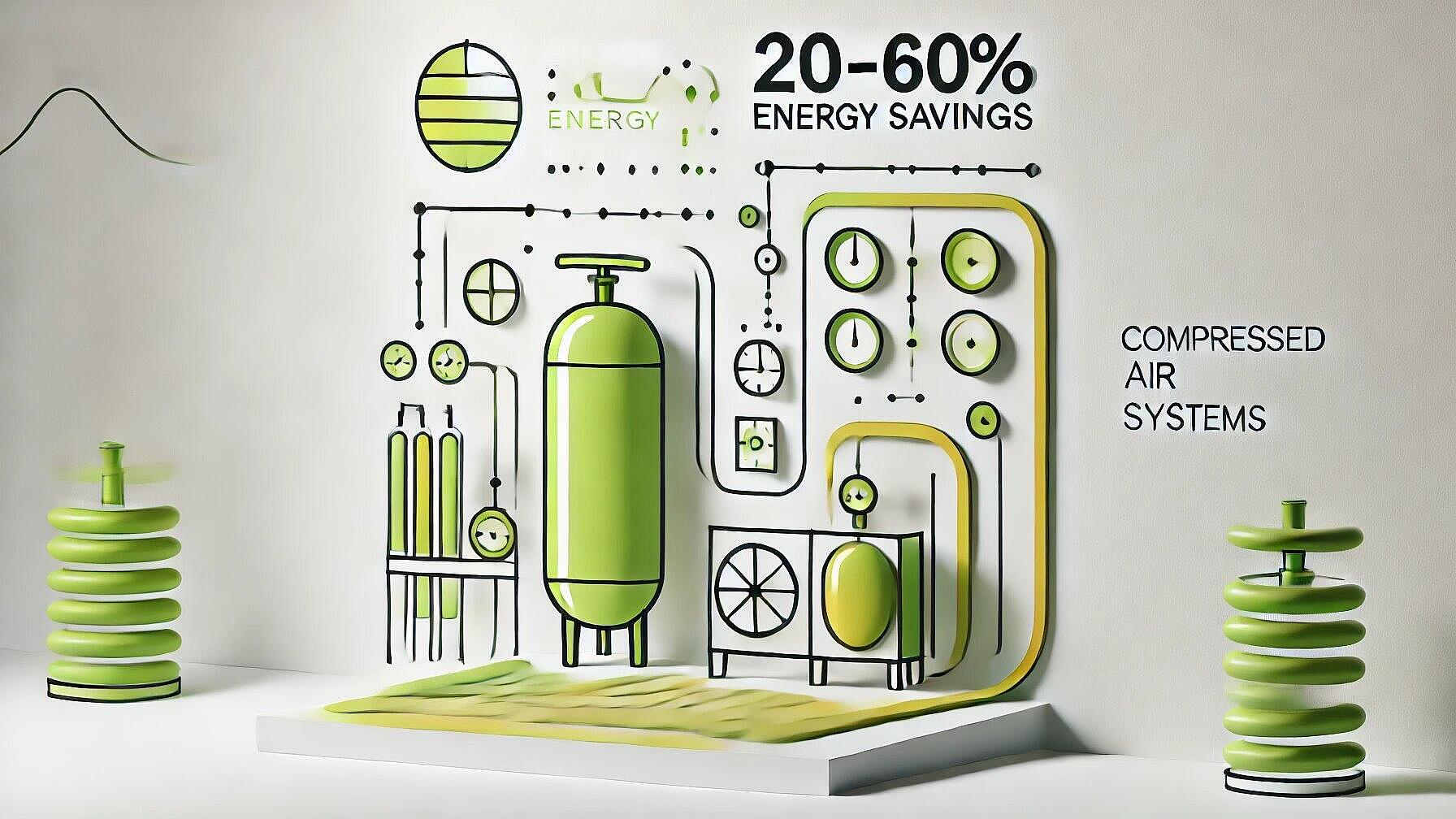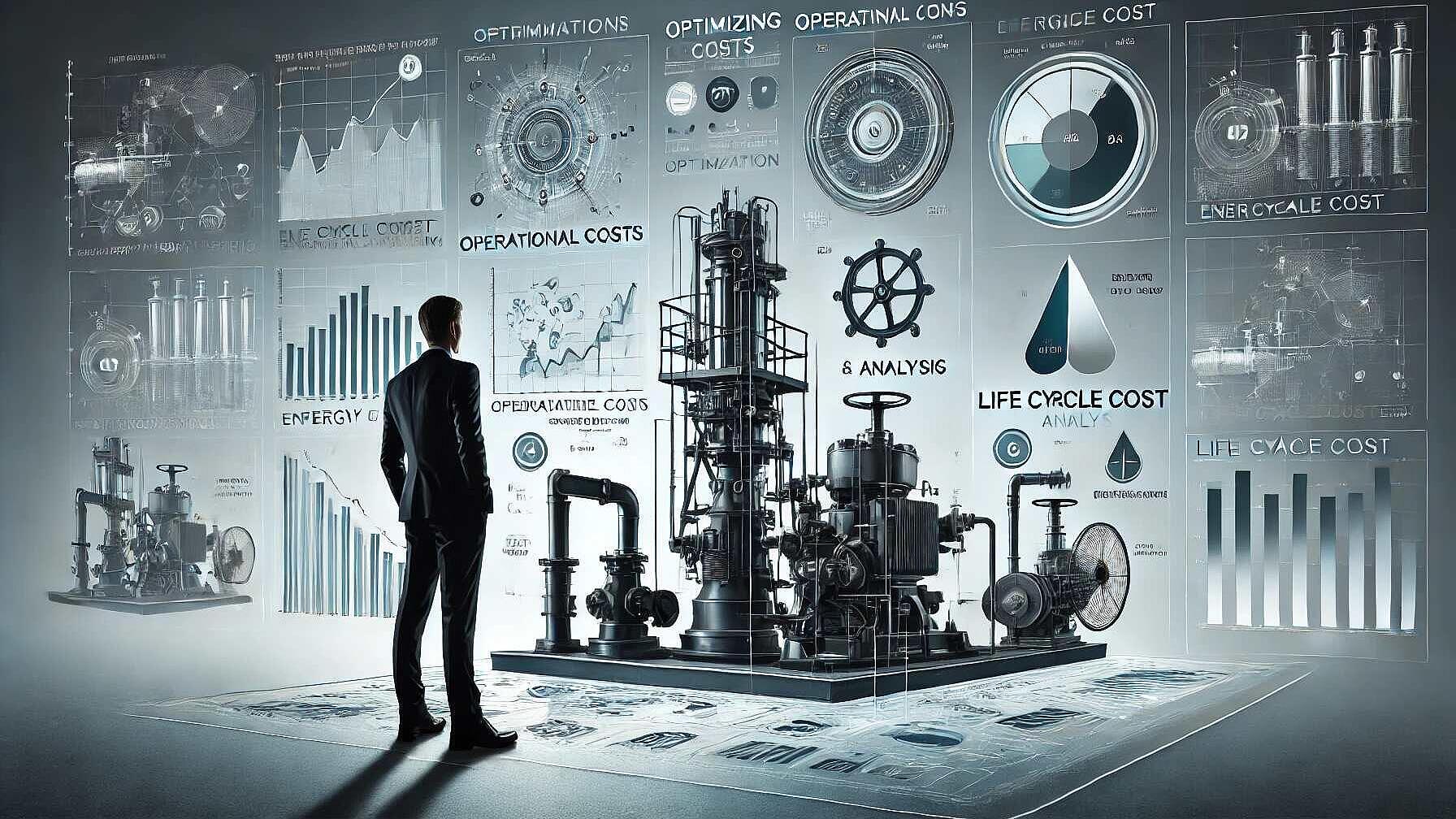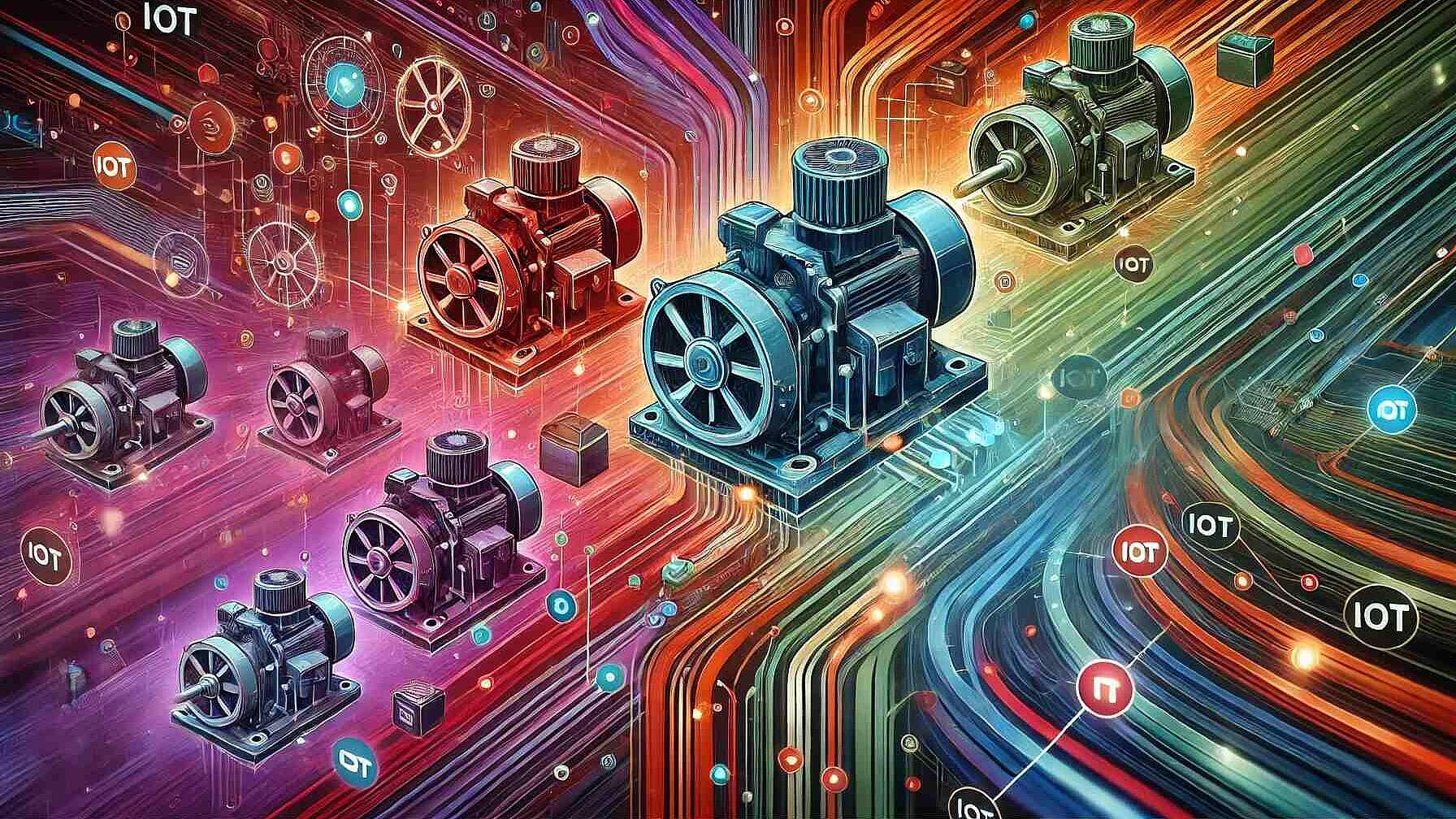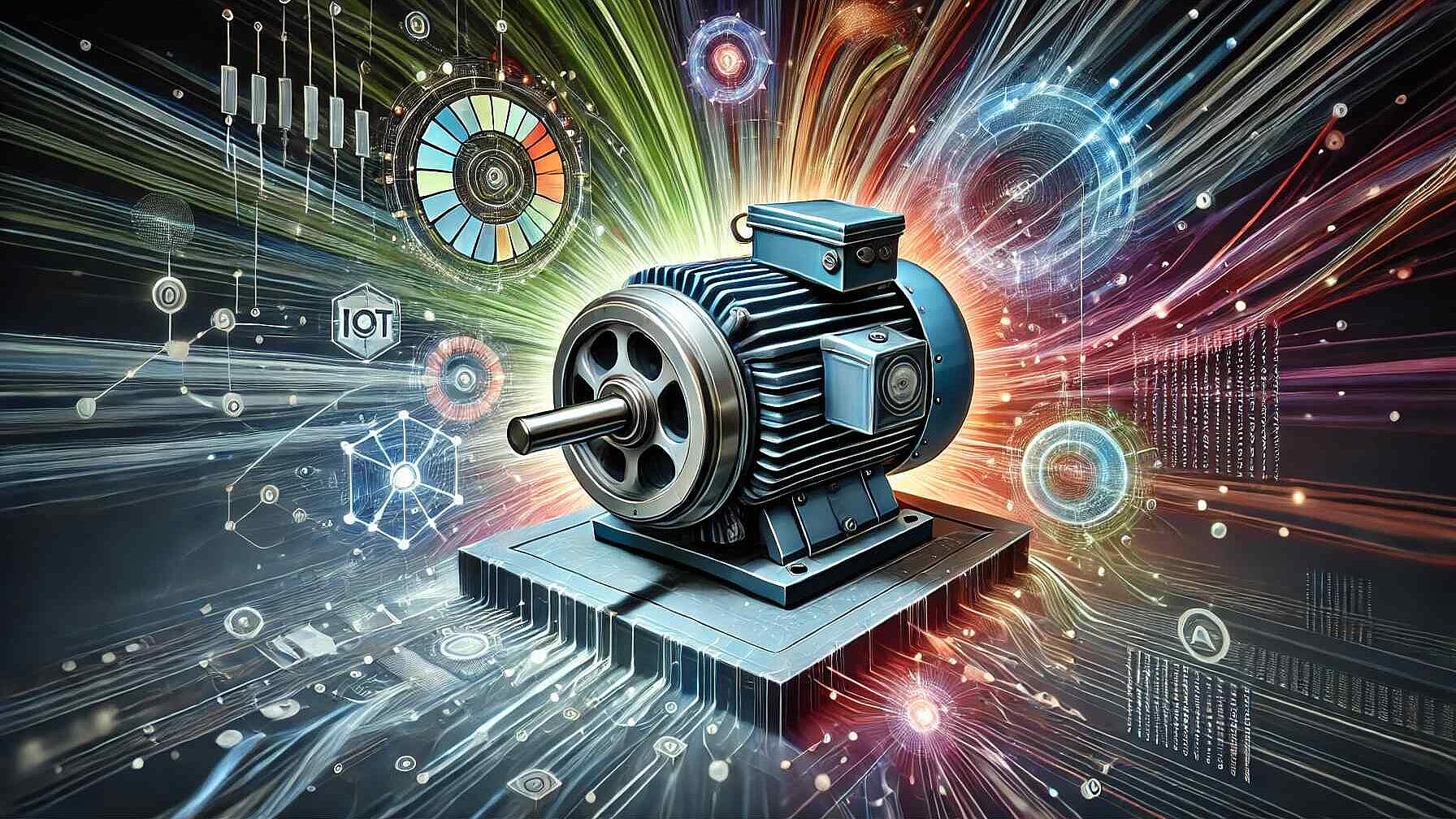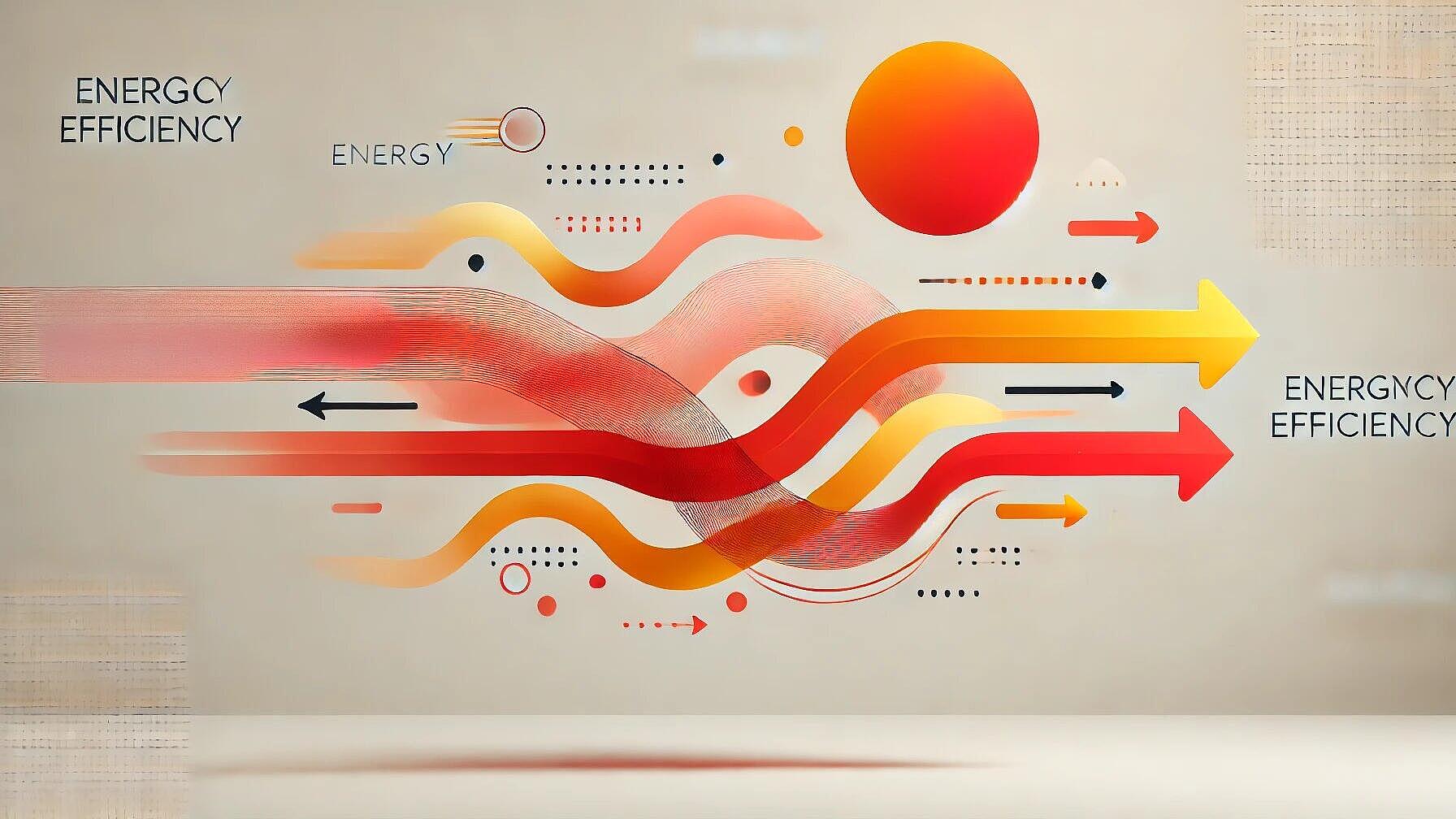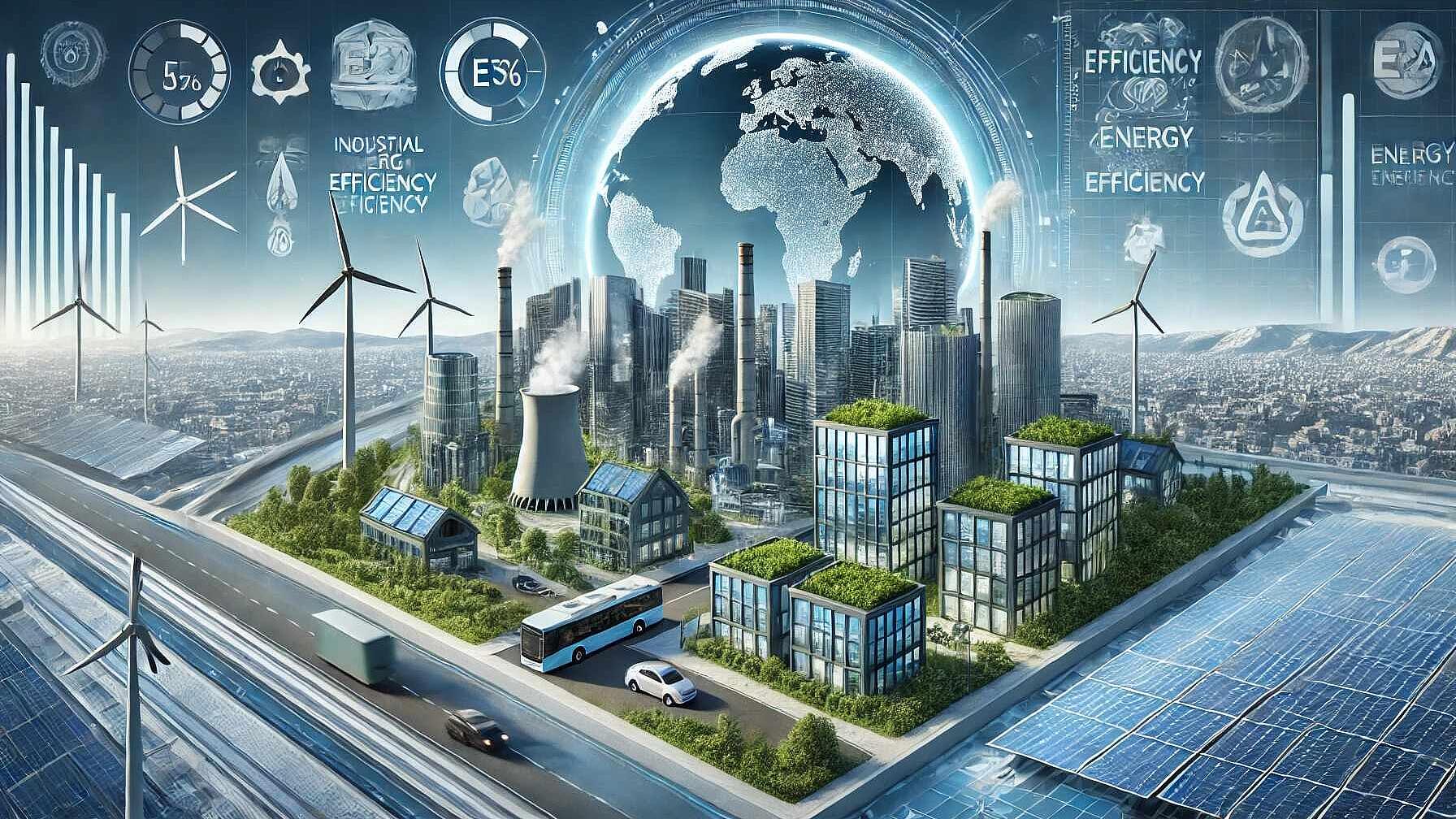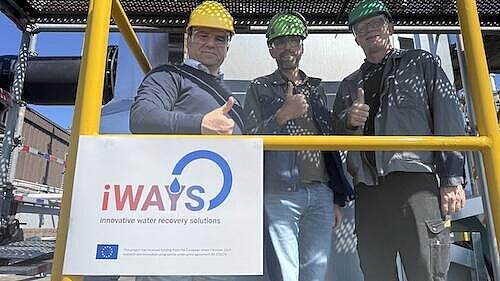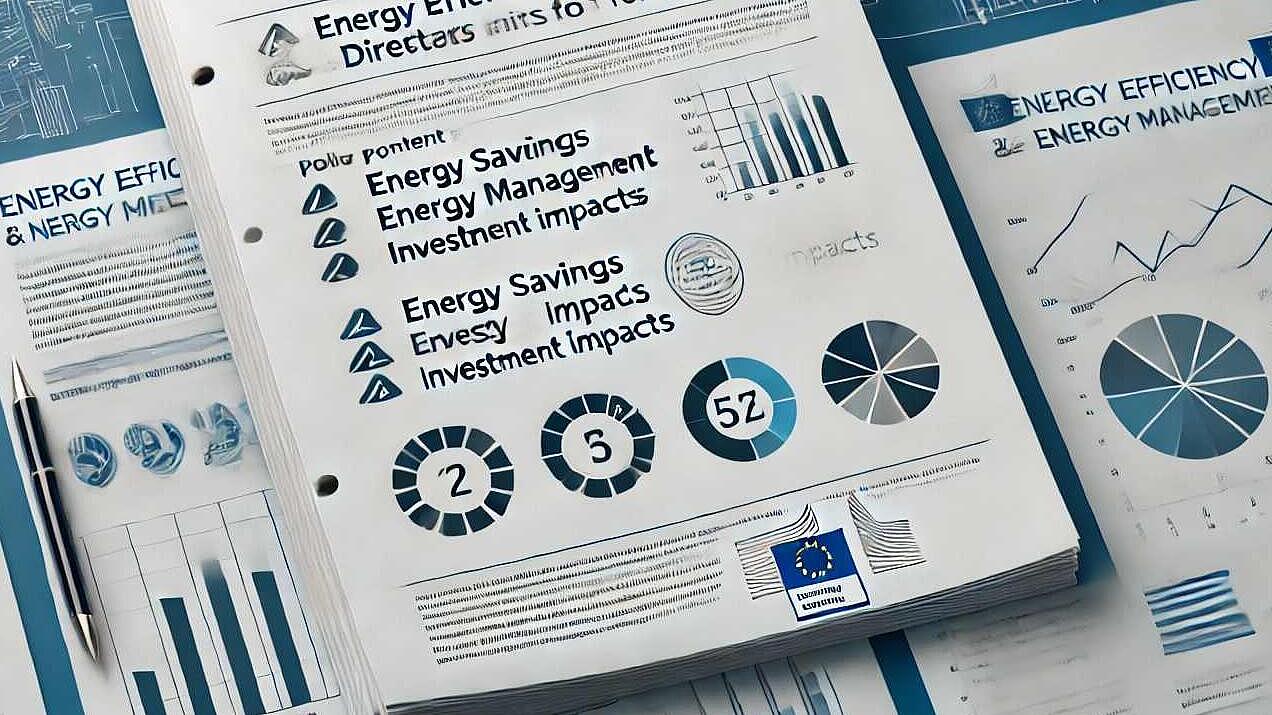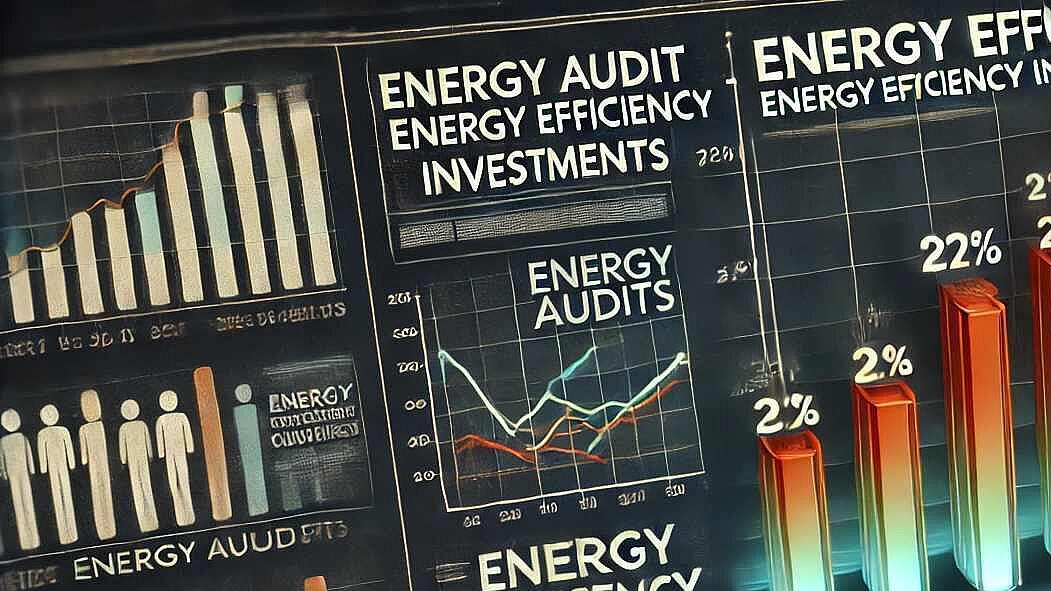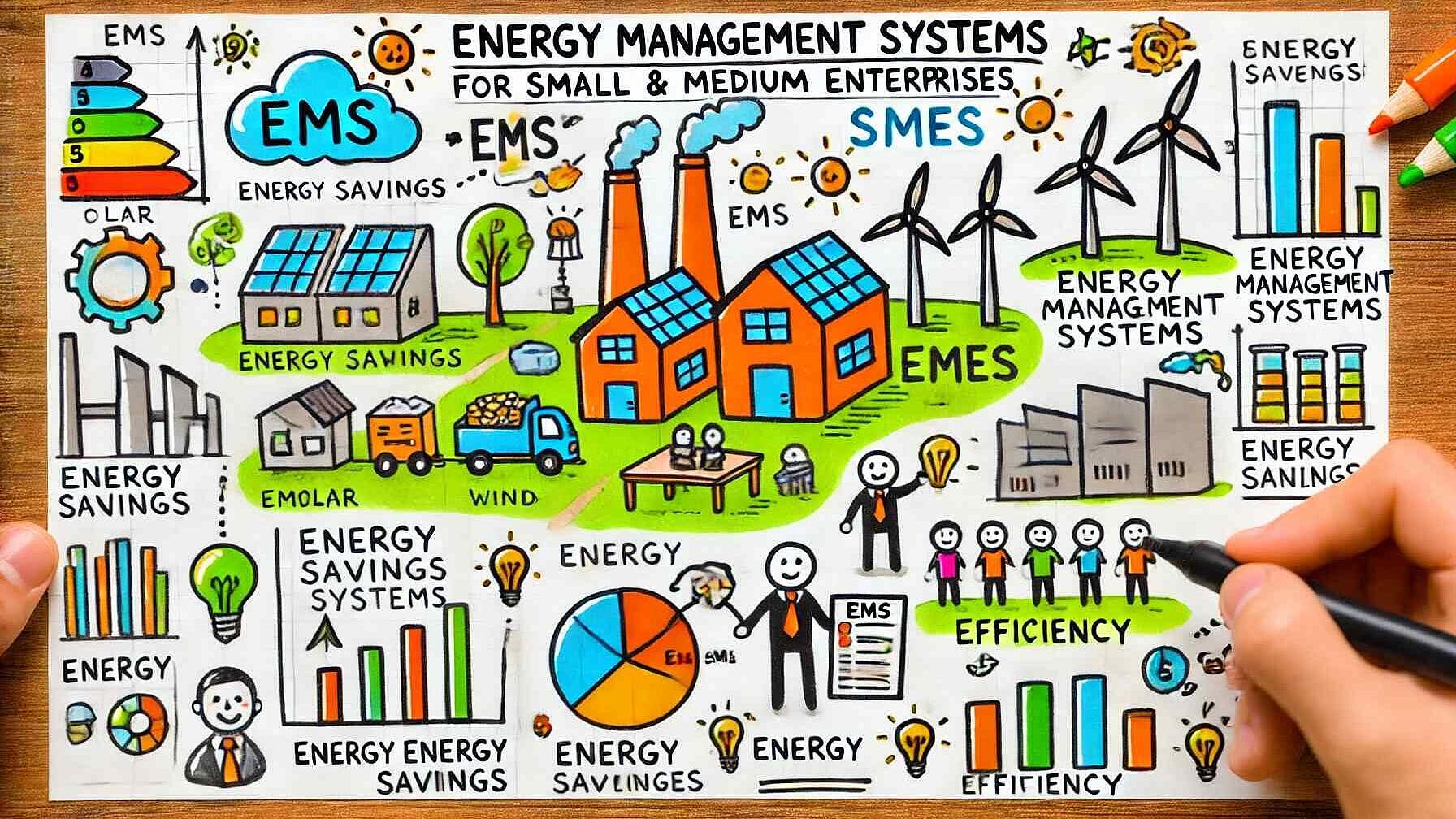 Energy Efficiency
Energy EfficiencyEnergy Efficiency
Powering Efficiency: Revolutionising Compressed Air Systems for a Sustainable Future
Compressed air systems (CAS) are critical in manufacturing but are energy-intensive, accounting for 10% of industrial electricity. They offer potential energy savings of 20-60%, which translates to significant cost reductions and environmental benefits. Despite its convenience, most CAS are inefficient, with only 10-30% of the air produced being effectively used. The rest is lost through leaks, inappropriate usage, and other inefficiencies. CAS consists of a supply side (compressors, storage tanks, dryers, filters) and a demand side (flow and pressure controls, distribution network). Optimizing each component can lead to substantial energy savings. Leaks are a major issue, often wasting 20-40% of air production, but can be mitigated through ultrasonic detection or soap-and-water tests. Proper storage tank sizing is also important, with a recommended capacity of 12-120 m³/m³/sec of air delivered, to avoid inefficiencies. Additionally, the suction temperature affects energy consumption, with every 3°C increase leading to a 1% increase in energy use. Therefore, the location of compressors can have a considerable impact on efficiency. Improvements in CAS not only lead to energy savings but also increase production reliability, reduce maintenance costs, enhance product quality, and decrease the carbon footprint. A systematic approach to CAS efficiency involves conducting air audits, fixing leaks, optimizing system pressure, sizing components correctly, implementing heat recovery, and regular maintenance. The highlighted case study in Barranquilla, Colombia, exhibited the tangible benefits of such measures, with potential energy consumption savings of 43.1% and annual cost savings of over 25 million Colombian pesos. Overall, optimizing CAS is a key way that industries can achieve sustainability and improve cost-effectiveness.
Leer Artigo completoRevolutionizing Pump Systems: The Power of Life Cycle Cost Analysis
Pumping systems represent significant energy and cost usage in industrial operations. Implementing thorough Life Cycle Cost (LCC) analysis can yield major savings by encompassing all ownership costs from initial purchase to decommissioning. Proper design, avoiding oversizing, and maintenance are crucial strategies.
Leer Artigo completoDigital Solutions for Energy Efficiency in Industry
The 4E TCP report demonstrates how digital solutions in industrial motor systems enhance energy efficiency, with case studies showing benefits like reduced electricity consumption, improved operational flexibility, and lower maintenance costs. Advanced control systems, real-time data monitoring, and IoT technologies lead to significant energy and CO2 savings across various sectors, despite initial investment and implementation challenges.
Leer Artigo completoDigital Revolution in Motor Systems: Powering the Future of Energy Efficiency
The paper highlights the revolution of motor systems through digital technologies enhancing efficiency, despite challenges such as lack of standardization and cybersecurity risks. Innovations include smart sensors, IoT, and AI-driven analytics, with case studies showing significant energy savings. Opportunities exist for professionals in data science and cybersecurity.
Leer Artigo completoPowering Europe's Clean Energy Future: Key Elements of the EU Energy Efficiency Directive
The EU Energy Efficiency Directive sets binding targets to reduce energy use by 2030 and introduces measures across sectors for energy savings, prioritizing efficiency, sustainability, and enhanced energy security for European citizens and businesses, requiring member states to implement various efficiency strategies and reporting mechanisms.
Leer Artigo completoDoubling Energy Efficiency Progress: A Key to Achieving Climate Goals and Energy Security
The IEA's Energy Efficiency 2023 report calls for doubling global efficiency efforts to 4% annually for achieving net zero targets, highlighting significant regional progress, job creation potential, and the necessity for a transformative industry shift, supported by robust policies and investment.
Leer Artigo completoInnovative system recovers heat, water and material from industrial waste streams
The innovative Heat Pipe Condensing Economiser (HPCE) has been successfully commissioned at Alufluor AB in Sweden, demonstrating that significant heat, water, and material recovery is possible using current materials and knowledge. This milestone marks a major advancement in energy savings in the chemical process industry, showcasing the potential for substantial gains beyond incremental improvements. The project involved considerable engineering and infrastructure investment, leading to an operational capacity of 650kW from exhaust recovery since August 1st, and is applicable across various industries, particularly in regulated sectors.
Leer Artigo completoAll you need to know: The EU's bold Energy Efficiency Directive
Directive (EU) 2023/1791 mandates a minimum 11.7% energy reduction by 2030, with specific targets for sectors and Member States. Emphasizing public sector efficiency, building renovations, and consumer empowerment, it sets a framework for sustainable energy use and addresses energy poverty, providing measures for enforcement and financing.
Leer Artigo completoGame Changer: How Energy Audits are Transforming Small Businesses
Energy audits are becoming vital for SMEs in Europe, offering detailed analysis of energy usage and efficiency, highlighting cost-saving measures. They notably influence investment decisions in energy-efficient technologies, with smaller firms and innovative companies benefitting the most. However, financial constraints remain a barrier to implementing energy-saving opportunities.
Leer Artigo completoEnergy Efficiency Or How SMEs Can Revolutionize Their Bottom Line
SMEs overlook 10-30% energy savings due to incomplete audits and complex consumption patterns. Adopting EMS offers cost reduction, improved productivity, regulatory compliance, and enhanced reputation. Barriers such as perceived costs, resource constraints, and lack of commitment hinder EMS implementation. Technology aids effective energy management, with smart meters and IoT enabling real-time data tracking. Best practices include starting with energy audits, setting reduction goals, and engaging employees. Successful EMS adoption in SMEs contributes to carbon emission reduction and energy transition goals, aligning with EU support for SME recovery and innovation.
Leer Artigo completo